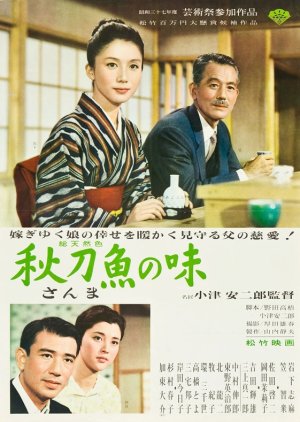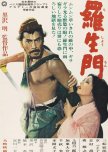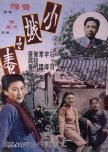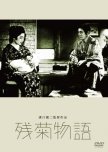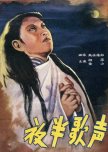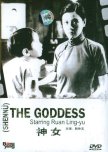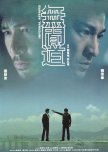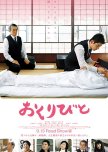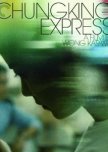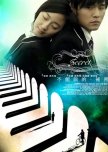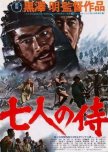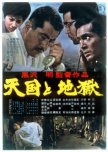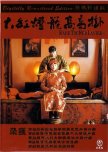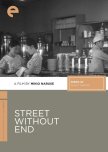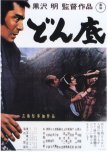
This review may contain spoilers
Alone again, naturally
An Autumn Afternoon was director Ozu Yasujiro's final film. The main character and Ozu were in the late autumn of their lives, far closer to winter than summer. Somehow, this film so reminiscent of Late Spring, with a father facing solitude as his children were leaving home was a fitting ending for the great writer and director.Ryu Chishu, an Ozu regular, once again played a father deliberating marrying his youngest daughter off. His character, Hirayama Shuhei wasn't in any hurry to find a suitor for her until he and his buddies held a reunion for an old teacher. The teacher's middle-aged daughter still lived at home and worked in their noodle shop taking care of her father. Instead of feeling sorry for the lonely, sad woman who was well beyond the age of marriage, they pitied the old man. These were the older men who mercilessly teased the one man in their group who had married a woman his daughter's age, worrying she would be the death of him. Most of the women in the offices were young because by the age of 24 they were supposed to marry and quit their jobs. As Shuhei makes the decision that Michiko should marry soon, his other children are only worried for him, not whether Michiko would be happy and well cared for.
Ryu did a superb job as always encompassing the character designed for him by Ozu. This time his daughter was played by Iwashita Shima who was actually age appropriate for this role. Young and vivacious, Michiko was in no hurry to marry but also was a dutiful daughter and followed her father's lead which Iwashita portrayed perfectly. It seems like there is always a strange casting in Ozu movies when it comes to age. Tono Eijiro(the old teacher) was a year younger than his movie daughter Sugimura Haruko!
The three older men felt like they could have been the school boys from Ozu's earlier films. All grown up, but still mischievous and pulling pranks on each other. I did find it oddly disturbing how often they made innuendos about the one man's very young wife. Though everyone was worried about Shuhei being alone, in reality he spent long hours at the office and then seemed to go out drinking with his friends every night. Michiko stopped making dinner for him and her brother because they never called to say if they were not going to be eating at home after she had gone to the trouble to cook for them. Though it was Shuhei we were guided to feel sorry for, it was the women who earned my pity. Michiko had little say about her life which was mostly laid out for her by men. The old teacher's daughter had been used by her father as a surrogate housewife to care for him after his wife died. Michiko's sister-in-law had to deal with a selfish husband who spent money recklessly. Shuhei was proud of his daughter for handling a rejection so well, then found out she had cried. Thankfully, Ozu had allowed her to be human and experience sorrow even for a moment.
This is the first Ozu film I've seen where WWII was mentioned so much. Shuhei had been the captain of a destroyer and met a crewman in a bar. The crewman lamented their loss, saying if they'd won those blonde haired, blue-eyed Americans would be play the samisen now instead of the young Japanese dancing to rockabilly. Shuhei blithely tells him then it's lucky they lost. Ozu rarely delved into the past with his characters. They lived and dealt with problems where they were---in the present.
Regardless of my misgivings for the lack of autonomy for the female characters, this was Ozu's world, not mine, and the old childless bachelor was feeling the sting of loneliness after the recent death of his elderly mother. Despite the characters in the film doing what they could to ameliorate their circumstances, there would always be suffering. Ozu never flinched from two difficult life lessons: Life is short and loneliness is hard. Shuhei bitterly said, "…sons are best…No point in having a daughter…" His friend understood the meaning beneath when he responded, "Boy or girl, it's all the same. They all go sooner or later." It's in the nature of children to grow up and leave the nest no matter how much love, attention, and money has been given to them…just as their parents did. One day Michiko may face solitude, maybe not in an Ozu film because the women all seem to die young, but parents all tend to fade from their children's lives. Old age is filled with empty, quiet rooms.
In the final scene, Shuhei sang from a military song and then said, "I'm all alone." The camera took one long loving look at Ozu's meticulously decorated set and the actor who had accompanied him for so long on their theatrical journey as Shuhei poured one last glass from Ozu's ubiquitous teapot. A fitting ending indeed.
4/26/23
Was this review helpful to you?

I also think this is one of the funniest Ozu's film I've ever watched besides Ohayou. Trio of Chisuu Ryu, Nobuo Nakamura & Ryuuji KIta once again makes me laugh with their casual typical-father conversation, that young wife & pills talk was so hilarious, even in this film 2 times I was fooled by their unexpected prank conversation which ended up with me laugh with them, such pleasure. There are some moments that have the potential to be a drama conflict but here is made funny instead like a sulking husband bullied by his wife and sister in a family way etc.
I love Ozu.
Was this review helpful to you?

Marry your daughter quickly, time may run out!
An Autumn Afternoon (1962) was Ozu's final film. It can be watched as a stand-alone or first Ozu film, but it will be more enjoyable to have seen many of Ozu's predecessor films.Ozu made so many films with seasonal themes he had to subdivide films not only by season but by time of day. Had he lived longer, we may have had an Autumn evening, an Autumn morning, etc. (I'm being playful). Yet again, we have variations on a theme by Ozu. If you've seen Ozu films and are turned off by the covering of similar plots, characters, character names, please reconsider. Amidst the similarities, there is still more ground for us to cover. Even the topic of arranged marriage, despite being presented in at least ten Ozu films, has something new for us to consider each film. We might feel rather certain that we're completely against such an antiquated practice only to wonder if it might end up being okay, for some folks, or in general. Perhaps it wouldn't suit us, we think, but then we live in a world where many marriages by choice don't work out.
There is nothing particularly new or novel with this film's plot. The increasing westernization of Japan is apparent in this film. Global products like Canada Dry can be seen. Japanese customers appear to have difficulty focusing on their meals at restaurants while taking in the local baseball game by television. Golf clubs are no longer a niche item; they now have a mature used-sale market. Refrigerators are upgraded so often that neighbors warn fellow neighbors 'Don't be in such a rush to buy a fridge; a better one will soon be on its way'.
The characters are familiar for those having experienced other Ozu films. Yet, the characters are quite enjoyable here. Chishu Ryu plays what I consider to be one of his more complex characters. He's yet again a father, widowed, and trying to set his daughter up with a marriage, but the variation here as well as subtle differences in his character are fully distinct enough to generate both new reflection and enjoyment. It's as if we've had chocolate chip cookies, then Ozu splashes in a hint of mango with the new variation. They're still chocolate cookies, but we consider what we're eating with newfound perception. Chishu is still SO familiar to his other roles that we feel his character is rather an extension or an accumulation of all prior 'fatherly' roles, but again, there's something new here in the character and acting to digest. He certainly enjoyed drinking in this film!
Okada Mariko and Sada Keiji play their roles in their 2nd consecutive Ozu film (the prior one being End of Summer) rather well. The support characters in An Autumn Afternoon are not as well-developed or convincing compared to End of Summer, but there are a few standouts. Shima Iwashita plays a background role in Late Autumn, but her entry into a starring role in an ozu film gifts us with a srong performance. She carries on the Ozu 'Noriko' spirit quite well as the daughter who won't say what they want and tirelessly take care of their father and family. The character, the "Gourd", wasn't particularly convincing, but a way to comment on what the 'father' figure would turn out to be if they didn't successfully marry off their 'daughter'. In most Ozu films, we see that the 'father' is successful in marrying off their daughters. The "Gourd" also is a tool to comment on social economic differences, and especially the awkwardness when juniors/students end up far more successful than the seniors/masters (Sensei).
Ozu gives us another one of his great ellipses/gaps in An Autumn Afternoon. After showing us the face of a potential groom, he doesn't satiate our curiosity with an image of the actual groom. We only see the bride and her immediate family.
Gender roles in society and family are well-explored in this film. And it is a bit more forward in examining WWII themes or themes of the 'soldier'. While not Ozu's best film, it was certainly a solid last film in the oeuvre.
Was this review helpful to you?

